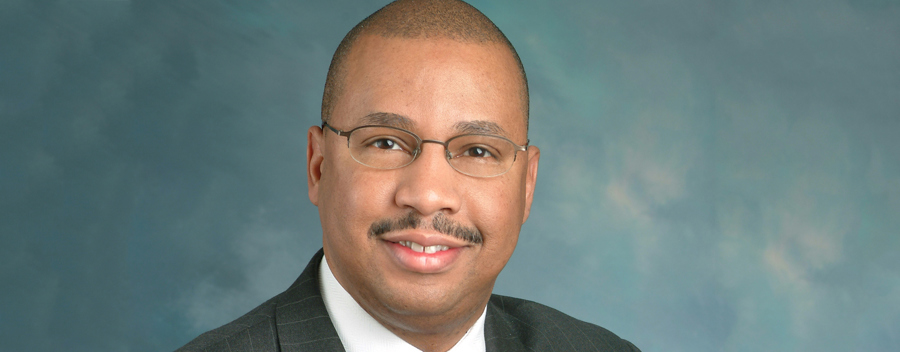
Meet Frederick Curry '03, practice leader of anti-money laundering and economic sanctions at Deloitte & Touche LLP
Since the terrorist attacks of September 11, 2001, financial regulators have dramatically stepped up enforcement of anti-money laundering laws and regulations. Today, it is not uncommon to see the Justice Department and regulators assess multimillion-dollar criminal or civil fines against banks and other financial institutions that bring large amounts of foreign money into the U.S. and violate anti-money laundering and economic sanctions rules. This high-stakes world of regulatory risk and financial compliance keeps Frederick Curry ’03, a leading expert in financial crimes, very busy.
“I love my work because it is so diverse—it’s global and it’s domestic,” said Curry, who was recently named practice leader of anti-money laundering and economic sanctions at Deloitte & Touche LLP. “It covers multiple types of businesses with banks, broker-dealers, insurance companies, casinos, money transmitters, precious metal dealers, and large retailers. Because my responsibilities include assessing financial crimes, my work also involves many business aspects, such as operations, accounting, technology, risk management, and compliance.”
Curry’s early interest in business came from his parents, who were both in banking: his mother was a head teller at Irving Trust Company, now the Bank of New York, and his father was a branch manager at Bankers Trust Company and Carver Federal Savings Bank. He followed in his parents’ footsteps and began work at Chase Manhattan Bank as a proof clerk in the check processing department on the graveyard shift. While working full-time at Chase, he completed his B.S. at Adelphi University and his MBA at Fordham University.
With an MBA in hand, Curry joined the Federal Reserve Bank of New York as a bank examiner. “I saw the strong intersection of law and business and decided to pursue a law degree,” he said. “It was one of the best decisions I have ever made. It has given me stellar credentials for business, career mobility, higher income, and a powerful legal network.”
Following graduation from Brooklyn Law School as a part-time night student, Curry joined the law firm Katten Muchin Zavis Rosenman in Washington, D.C., where he advised large financial institutions on anti-money laundering and economic sanctions compliance. In 2005, he joined Deloitte. Since then, Curry has become a kind of anti-money laundering James Bond—being retained as a consultant and expert witness by major banks in cases involving allegations related to aiding and abetting multimillion-dollar Ponzi schemes; a money laundering scheme orchestrated by a bank employee and a Colombian drug cartel; and a case involving embezzlement of funds by a company’s accounting firm.
Curry’s work earned him an appointment in 2011 to the board of directors of Transparency International–USA, the American chapter of a network of nonprofit organizations that combat corruption worldwide. Curry is also the founder of The Sirius Foundation Inc., a nonprofit organization that has awarded annual scholarships to high-achieving African-American women who aspire to careers in business.
Curry is grateful to Brooklyn Law School for preparing him to lead in this complex and global arena. “The Law School helped me gain a better understanding of our legal order, and how it operates and intersects with our daily lives and major sectors of our society such as business, religion, education, and government,” he said.
Curry is a longtime supporter of the Law School. He is a leadership donor and member of the 1901 Society who provided a major boost to the Law School’s first Giving Day last year when he established an immediate impact scholarship to attract African-American students to the school. In addition to his financial generosity, Curry has given freely of his time. He returns to the Law School frequently to speak to students as a mentor and to participate in events. Working with Professor Michael Gerber, he helped found Brooklyn Law School’s pioneering and popular Business Boot Camp, a three-day intensive teaching students to “think like a businessperson” as well as a lawyer.
—Andrea Strong ’94